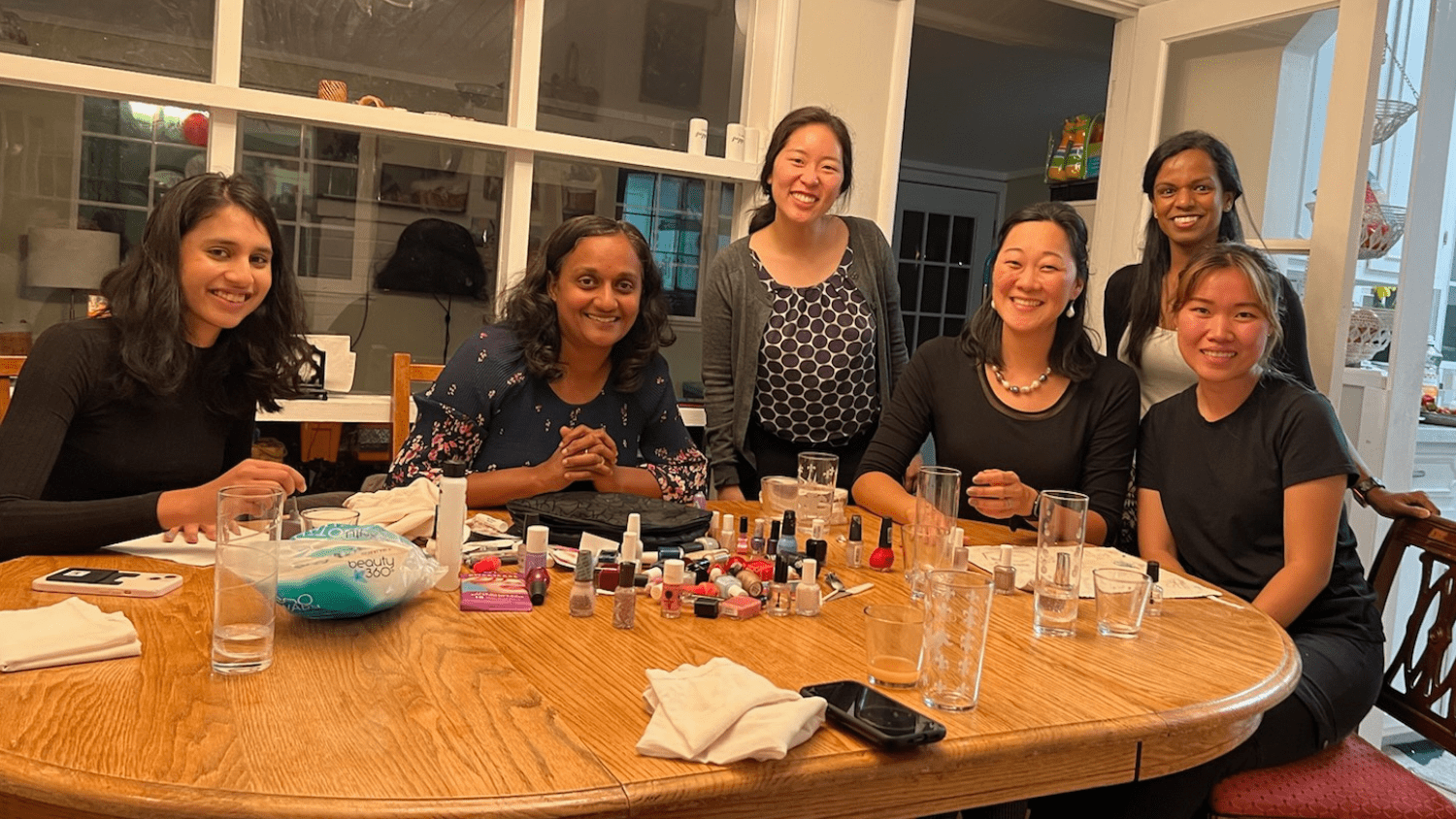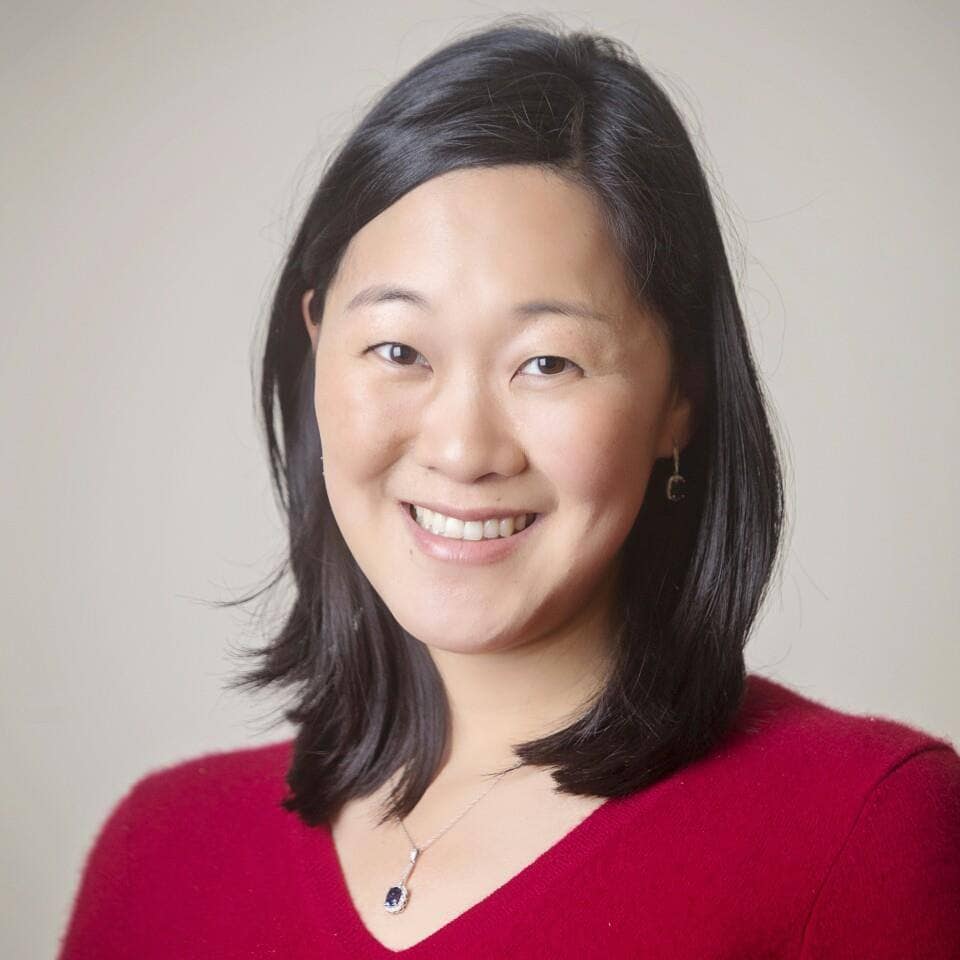I’m newer to the Covenant, but for years, I’ve wanted to make it my denominational home. I presently serve as assistant pastor at Grace Community Covenant Church, a historic Asian American church in Los Altos, California, that Steve Wong planted in 1998 with the support of the Covenant. I have been grateful to Steve for offering refuge to me and many other young pastors through the regional South Bay Covenant Pastors’ Cluster, a monthly prayer group he has overseen since the passing of Pastor Jim Gaderlund in 2018. The cluster meets in the Fireside Lounge of Foothill Covenant Church on the second Thursday of every month over lunch, and it is an invaluable space for mutual support and deep encouragement. Recently, I was invited to help shape content for our 90 minutes together, and I write this article today to share a bit about myself and why I chose to introduce something called “scriptural reasoning” to our most recent cluster gathering.
Let me begin by saying that before I became a pastor, I worked with InterVarsity Christian Fellowship at Harvard College (now University). As part of my work with InterVarsity, I represented our three IV chapters to a body called the Harvard Chaplains, 40 of us chaplains from 25 different religious traditions, including atheism. We met monthly to discuss how to nurture a value for spirituality at one of the most elite, secular educational institutions on the planet. Our communal challenge was to collectively raise the visibility of practicing faith in a context where faculty and administrators could dismiss the existence of God or the relevance of faith with an offhand comment and nary a second thought. Those years of collaborating and co-working alongside other humans whose belief systems and operating modes were so different from my own stretched me profoundly. They helped me learn how to be a humble, earnest, vibrant lover of Jesus and an effective minister to Christian students—but also an open-minded, thoughtful chaplain and spiritual care-provider to everyone I might encounter on campus.
Follow me then, from Boston, Massachusetts, across the country, to the beautiful Bay Area of northern California, where work opportunities, seminary education, and family ties were God’s means of moving my husband and me westward. I distinctly recall sitting outside City Hall of Santa Clara, our chosen city of residence, reading for my MDiv classes at Fuller Theological Seminary. It was yet another sunny and bright California day—until I was approached by two clean-shaven men wearing Mormon name badges on their formal dress suits. I was caught off-guard and didn’t quite know how to respond to their invitation to dialogue. Here I was, a married woman, sitting alone outdoors, uncertain of how to respond to two white men who came out of nowhere wanting to talk to me. I felt bad directly rejecting their advances, but it all felt really awkward.
Sometime later, I was approached by an Asian American woman around my age who was a Jehovah’s Witness. She seemed nice enough, so I agreed to meet with her at a library for some dialogue. Even though she’d told me we would connect one-on-one, she brought along an older white woman who was also a Witness—and I remember feeling mistrust after she said one thing but did another. I don’t think I felt heard in our conversation. They seemed to just want me to listen quietly as they talked at me. Somehow I took home a DVD they wanted me to watch. Later, I disposed of it.
These icky interactions felt so different from what I’d experienced in Boston, though I did have one experience at Harvard when three Muslims from the Harvard Islamic Society followed me home after an interfaith iftar. I remember standing with my back to the brick entryway of Lowell House, my dormitory. We stood talking for a while, and I felt outnumbered, uncomfortable, and vaguely unsafe. The three-on-one dynamic just didn’t feel right.
I know for sure that in undergrad, I was at times the overzealous evangelist. I think in particular of one of my roommates who was Hindu by background. We had many conversations in those years about baptism, conversion, and exciting things happening in our Christian fellowship community. She was always polite, respectful, and courteous. But to this day, I wish I could have been more sensitive or skilled in opening up our conversation for more mutuality and reciprocity. I wish I’d known how to adopt a learning posture toward her and her faith tradition. The closest thing to embodying that posture was choosing to dance in the South Asian cultural dance show she and her boyfriend (now husband) were co-directing together. I was not a dancer, but they were willing to teach me bhangra moves, and I still think fondly of that experience during our senior year of college. But it was a far cry from actual dialogue or a deeper understanding of her religious and cultural traditions.
All of these interactions and reflections compelled me to write a seminary paper for my Christian ethics class on ethical evangelism. I loved Jesus and wanted people to know him, but I did not want to do so in ways that made others feel unsafe, outnumbered, or where a power differential gave one of us an upper hand. I valued being on equal, common ground with others, where we could both choose to opt-in and engage or feel the freedom to opt-out. Authentic invitation mattered—and so did heart-capacity for friendship with the person I was seeking to share my life and deepest beliefs with.
One useful practice I encountered along the way that fostered this heart-capacity within me is “scriptural reasoning.” It is a core practice in what is commonly known as interfaith dialogue. I was trained in scriptural reasoning years ago and brought it to our cluster meeting recently in the hopes that it might help us grow and develop professionally in a new way.
As Christians we value the Hebrew Bible and the Greek New Testament—our holy Scriptures—as the most compelling sacred texts we hold dear. The practice of scriptural reasoning puts those two Scriptures alongside the Arabic Qur’an and invites readers to discuss all three texts together on a given theme. (Information and resources about the origin, history, and framework for this practice can be found at scripturalreasoning.org).
The text pack we looked at together in our cluster was on nonviolent responses to hatred. I began by saying that we might feel dissonance or discomfort in reading a portion of the Qur’an. However, the contents of “Made Distinct 41:33-36” turned out to be so largely consonant with the snippet of Romans 12:17-21 that I think everyone felt fine with it. That portion of the Qur’an essentially encourages the reader to “repel evil with what is better and your enemy will become as close as an old and valued friend.” This sounded very much like Romans’ call to “not repay anyone evil for evil, but…so far as it depends on you, live peaceably with all.”
Perhaps, for this reason, I felt our group was most enlivened by our discussion of 2 Samuel 16:5-12, a relatively obscure account of King David being verbally abused and assaulted by Shimei because of his son Absalom’s rebellion against him. Responses ranged from thinking that David was humble and correct in accepting this judgment as valid—and not responding defensively—to seeing David as being so battered down by his son’s rebellion that he had nothing left within him to defend himself against yet another combatant. I was surprised by the range of valid human emotions and interpretive responses this short pericope evoked. It made me remark, perhaps a bit to my own surprise, “What a concept! To look at Scripture together as pastors!”
It was fascinating to prepare for our time as I expected people to feel dissonance at reading a Muslim sacred text. Instead, I found that I came away feeling deeply nourished by reading the Hebrew Bible together with pastor-friends. It made me realize that this endeavor to be thoughtful contributors to our multicultural, interfaith society comprised of so many different traditions might actually deepen my appreciation for my own community.
This practice of learning to approach sacred texts with a posture of humility marked by curiosity and openness can help us develop and keep a learner’s posture as we encounter new people around us. We might otherwise come in feeling guarded, defensive, and scared to open ourselves up to other people’s traditions. It is much easier to talk about this than to do this!
So much may feel at stake as we venture to place our own sacred texts alongside the text(s) of another tradition. It may feel dangerous or even wrong. But this practice may actually reflect what it looks like to genuinely exercise faith in a diverse society like our own.
Finally, practices like scriptural reasoning give us a momentary experience of the cultural distance that exists between ourselves and others. It underscores the intentional work, effort, and time it takes for others to imagine entering into our spaces too. For us to do evangelism, we are called to make the effort to build, establish, and maintain trust. For others to respond, it takes risk, the extension of grace, and their intentionality to overcome discomfort too. Could we acknowledge and respect that? Do we have heart-space to give that due time?
May our efforts to be bold in our witness be matched by our willingness to genuinely be humble and trustworthy friends to those around us. May God bless our reading of his Word—even as we bravely read it alongside others.














